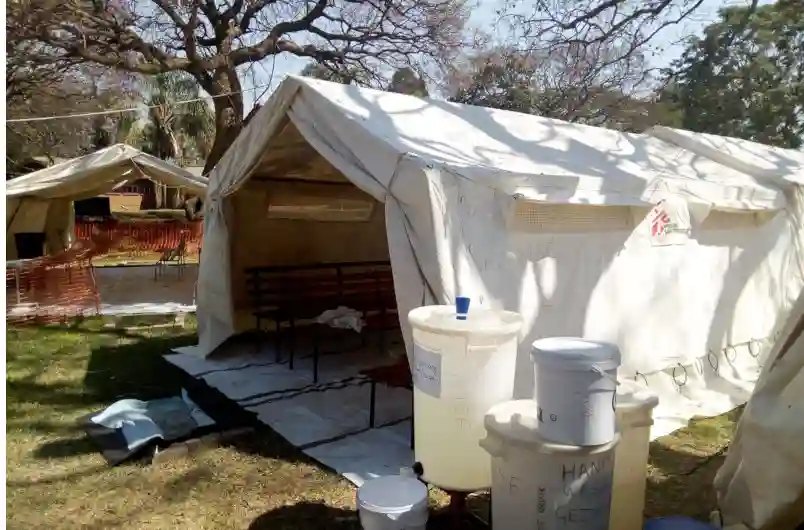Cholera cases are on the rise in Zimbabwe after an outbreak three months ago.
This year’s first cholera case was recorded in February in the town of Chegutu in Mashonaland West Province.
By the end of last week, 834 cases had been recorded from the country’s 10 provinces.
Causes
Cholera is caused by a bacteria called Vibrio cholerae which produces a toxin that affects the cells lining the small intestine, leading to severe diarrhea and dehydration.
The bacteria is spread through contaminated water or food, particularly in areas with poor sanitation and inadequate access to clean water.
Cholera Symptoms
Cholera symptoms typically appear within a few hours to five days after infection and can range from mild to severe.
The most common symptom is a sudden onset of diarrhea which is often described as “rice-water” stools because of its pale, milky appearance with flecks of mucous and sometimes blood.
The other cholera symptoms are:
- nausea and vomiting
- dehydration (characterized by dry mouth and throat, feeling dizzy when standing up, decreased urine output, or dark-colored urine)
- muscle cramps and weakness
- rapid heart rate
- low blood pressure
Cholera can also lead to shock, seizures, and even death if left untreated.
Prevention
Measures to prevent cholera include the following:
- Washing of hands frequently with soap and clean water, especially after using the toilet or before eating.
- Ensuring that drinking water is safe and free of contamination. Boiling water for at least one minute or using water filters or purification tablets is highly recommended.
- Avoid raw or undercooked seafood, fruits, and vegetables that may have come into contact with contaminated water. People should stick to cooked foods that are served hot.
- Surfaces that may have come into contact with contaminated water, such as kitchen counters and utensils should be sanitised.
- Getting vaccinated against cholera can help prevent the disease.
Treatment
The most important aspect of treating cholera is to replace fluids and electrolytes lost through diarrhea and vomiting.
This can be done through oral rehydration therapy (ORT) or intravenous fluids in severe cases.
Cholera can also be treated by using antibiotics which shorten the duration and severity of cholera symptoms, as well as decrease the amount of bacteria shed in stool.
Zinc has been shown to reduce the duration and severity of diarrhea in children with cholera and other causes of acute diarrhea.
More: Pindula News

